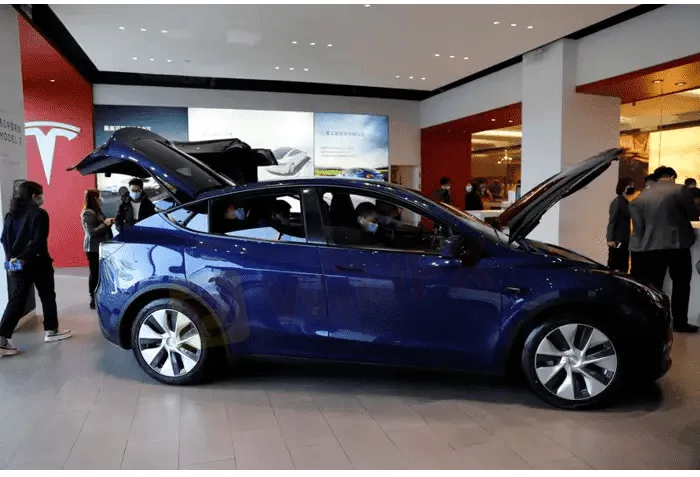Abstract:Tesla Inc sold 83,135 China-made vehicles in wholesale in September, smashing its record of monthly sales in China, the China Passenger Car Association (CPCA) said on Sunday.

The number marks an 8% increase from August and set a record for Teslas Shanghai factory since production began in December 2019, topping the prior deliveries high of 78,906 in June, as the U.S. car maker continues to invest in production in China.
“The record high sales of China-made Tesla cars showed electric vehicles have been leading the mobility trend,” Tesla said in a brief statement.
Globally, Tesla last week said it delivered 343,830 EVs in the third quarter, a record for the worlds most valuable automaker, but less than the 359,162 analysts on average had expected, according to Refinitiv.
Tesla quickened its China deliveries after suspending most production at the Shanghai plant in July for an upgrade, which has brought the factorys weekly output capacity to around 22,000 units compared with levels of around 17,000 in June, Reuters previously reported.
Since the plant opened in its second largest market in late 2019, Tesla has sought to run the facility in Chinas commercial hub at full capacity.
It, however, plans to hold production at its Shanghai plant at about 93% of capacity through the end of year, in a rare move for the U.S. automaker, Reuters reported last month, quoting sources, who did not say why it was doing it.
The plant, which manufactures Model 3s and Model Ys to both sell in China and export to other markets including Europe and Australia, had reopened on April 19 after a COVID-19 lockdown, but only resumed full production in mid-June.
Production accelerated despite heatwaves and COVID curbs that hit its suppliers in the southwest region of the country.
Tesla, which has been offering insurance incentives to consumers in China since September, is facing growing competition from domestic EV makers in a sharply weakening economy, while consumption falls amid the strict COVID curbs.
Chinas BYD continued to lead the domestic EV market with 200,973 wholesale sales in September, a nearly 15% jump from August. CPCA said higher oil prices and government subsidies continue to encourage more consumers to choose electric vehicles.










